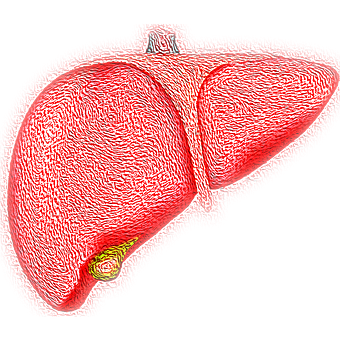Hepatitis B: Symptoms and Treatment
More than 1.2 million Americans and 350 million people worldwide suffer from Hepatitis B. Hepatitis B is an infection in the liver. It’s caused by the hepatitis B virus (HBV) and can be acute and even resolve without treatments sometimes. However, worst cases can become chronic, leading to liver cancer and cirrhosis.
HBV is a serious global health concern that has caused about 887,000 deaths worldwide. Even though this is a short-term condition for most adults that causes no permanent damage, it can transform into something chronic in 2% to 6% of adults.
Symptoms of Hepatitis B
Most HBV infections occur during childhood or infancy as they can be passed on from the mother to the child during childbirth. However, it’s rarely diagnosed in childhood as there are very few to no obvious symptoms.
In the case of a child under 5 years of age or adults with a suppressed immune system, symptoms of new HBV infection aren’t apparent. It can take anywhere between 60 to 150 days for acute symptoms to appear after contraction of the virus. Once contracted, the symptoms can last from weeks to six months.
Some symptoms of acute HBV infection include persistent fatigue, abdominal pain, and aching joints. Some other early symptoms that you can keep an eye on include:
- Fever
- Joint pain
- Fatigue
- Nausea
- Vomiting
- Loss of appetite
- Dark urine
- Clay-colored stool
- Jaundice
Is Hepatitis B Transmittable?
HBV is transmissible through semen, blood, or contact with any other bodily fluid of a person with HBV. This infection is highly likely to occur if:
- You engage in sexual activity with a person who’s HBV-positive
- Share needles, drug injections, or syringes with an HBV-positive person
- Practice unsafe tattoo techniques
- Share personal hygiene items (such as toothbrushes or razors)
However, there are a few things through which HBV cannot spread, such as:
- Water or food
- Shared utensils
- Hugging
- Sneezing
- Coughing
- Insect bites
HBV can survive on the surface and outside the body for up to 7 days. During this time, if you contract it, it can still cause infection.

Is There a Cure for HBV?
While there is no cure for HBV yet, the only way you can prevent it is by getting a vaccine to prevent the initial infection. You can use antiviral medication to treat chronic infections. But if HBV starts causing damage to your liver, the only thing you can do for long-term survival is to get a liver transplant.
Antiviral medications can be quite expensive, especially if they are from a renowned brand. While most insurances don’t cover prescription bills, Advocate My Meds is here to help you with our prescription assistance programs. Our full-service prescription assistance organization makes prescription drugs affordable through our financial assistance for prescriptions.
Contact us now to learn more.







